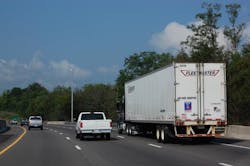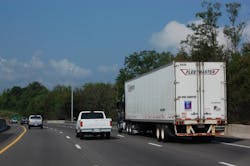Now there are, of course, very valid reasons for not wanting to be a truck driver, too, starting with the pay coupled to long stretches spent away from home and family – just the tip of iceberg in terms of generational issues companies across the industrial spectrum are dealing with; not just trucking alone.
On the flip side, there’s been a lot of hand-wringing about the poor skill sets of Generation Y – also called “Millennials” – that make up a growing portion of the labor pool from which carriers will need to draw driver candidates.
Yet maybe – just maybe – the so-called “younger generation” isn’t so out of touch with the work ethic desired by trucking companies large and small. Indeed, a recent study may indicate that one type of fallout from the “Great Recession” and subsequent sluggish recovery is the adoption of a new and more “pragmatic” view of working life the Millennials.
Conducted by TRU, a youth market research firm, the survey of 5,667 high school and college students anchoring the company's new TRU Enrollment Insights Program found that the generation often criticized for being coddled and entitled has, in their words, "become more realistic than idealistic" in its attitudes toward money and career preparation.
The poll's data further suggests that Millennials who came of age as economic boom times turned to bust understand that success and security won’t be handed to them, and that they are opting for pragmatic life choices.
Other findings from TRU’s study include:
“This clearly signals that Millennials are adapting their expectations,” said Deborah Maue (at right), TRU’s vice president. “Young people may still be dreaming of bigger and better things like past generations, but they’re much more pragmatic. They’re thinking carefully about the risks involved with all of their decisions.”
That could open a much-needed window of opportunity to attract more “new blood” into trucking’s driver ranks.
As an aside, TRU’s poll also discerned some interesting – and some would say quite contradictory – belief sets held by the Millennial generation. Think about these findings for a minute:
- The majority of college students in TRU’s poll favor birth control, abortion rights and universal health care. In addition, nearly two-thirds of college students support same-sex marriage while only 22% oppose it. Even among high school students, half of them support same-sex marriage and just 28% oppose it.
- Yet a majority of college students also support gun rights, while fewer than half want to legalize marijuana.
“This shows that today’s youth can’t be understood based on old assumptions,” Maue noted. “For those who‘d use this study’s findings to put today’s young people in a ‘liberal box,’ think again.”
Yet in the end what’s important for trucking in regards to TRU’s findings on “social/cultural” issues above is not whether Millennials are liberals or conservatives.
Instead, it’s really to show that the “younger generation” is very different from what the “conventional wisdom” may indicate – meaning that trucking might not have such a difficult time finding younger folks willing to drive a big rig for a living after all.


